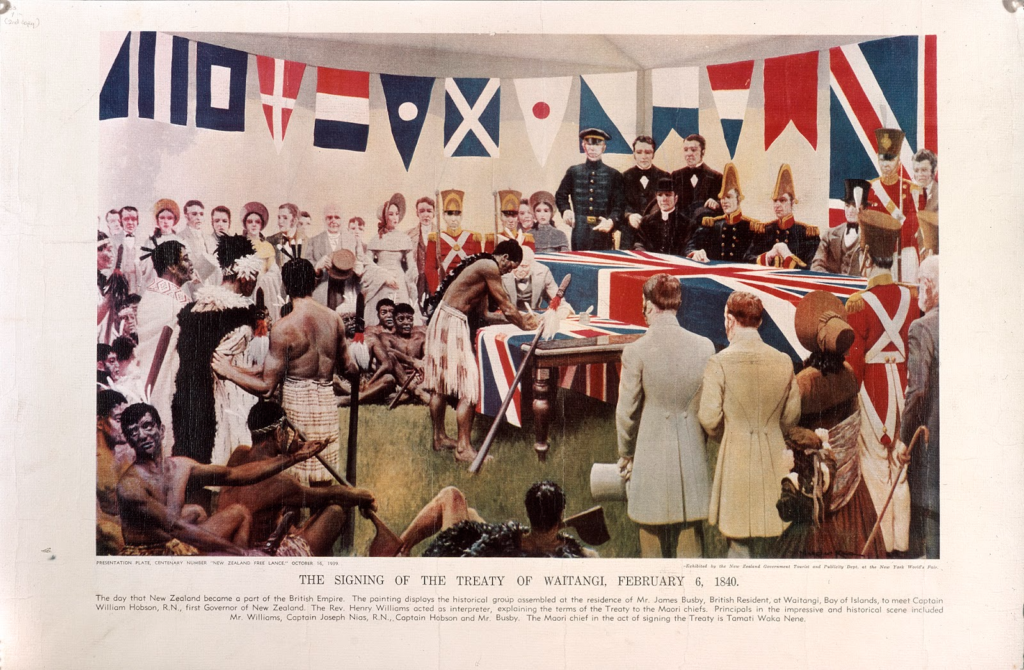In brief
- Both versions of the Treaty of Waitangi are subject to endless interpretations.
- There will never be consensus as to what the Treaty actually means and the obligations it implies.
- Many of the “expert” opinions are from people with vested interests, but voters actually call the shots.
Two versions of the Treaty, but endless interpretations
The Treaty of Waitangi 1840 is written slightly differently in its 2 languages, English and te reo Māori. Its fiercely debated inconsistencies make it clear there is no universal agreement on what the Treaty means.
Follow the bouncing ball… I mean“experts”… if you can
Some have argued the Treaty’s architects had noble intentions to protect Māori from British settlers. Others say they were motivated by contempt and racism and were nothing short of evil.

by Archives New Zealand
Some say the land was generally purchased from Māori while others say it was scammed or taken by force.
Some argue “sovereignty” of the Crown trumps Māori chieftainship rights. Others say the two can co-exist.
It has been suggested the Treaty calls for the modern “progressive” equality of results, as opposed to equality of opportunity.
It has also been argued that all rights under the Treaty guaranteed to Māori are also guaranteed to all New Zealanders.
These arguments and others are used to support various forms of co-governance, in situations that range from issues of minor concern, like parks, to very significant government services like water and health. And the degree of control (and potential for corruption) varies, including what is more than 50% control over water.
The term “Co-governance” is not in either of the Treaty versions. Critics say co-governance undermines democratic norms such as ‘one person-one vote’ and favours Māori elite. They also say co-governance does nothing for ordinary Māori and wouldn’t have survived the evolution of democracy even if the Treaty had clearly called for it.
Despite Māori being entitled to all the regular government programs they also receive extra so it could be said they end up with a disproportionate amount of government expenditures. This is just one example of an extra that the Treaty does not require that Māori receive over other citizens. But the plusses for Māori often get lost in all the talk about alleged colonial injustice.
The Treaty does not define who is a Māori. The current definition of having any Māori blood at all seems unlikely to be what Māori would have used in times past, and seems designed to increase the count of Māori. Afterall, if you are 5% Māori but count as Māori, do you also count as one person for every other 5% heritage? That would mean one person could be counted 20 times.
There’s never going to be consensus on the Treaty of Waitangi. It has gone from being considered null and void for nearly a century to being revived and declared a foundational document of the nation. Its proponents and detractors have argued countless angles. That’s a lot for a one page document.
Where we’re at today
Voters need to realise they are being fed opinion masquerading as fact. And that there is nothing wrong with them if they don’t buy into this or that interpretation. The path forward lies with voters deciding what’s in their best interest.





















